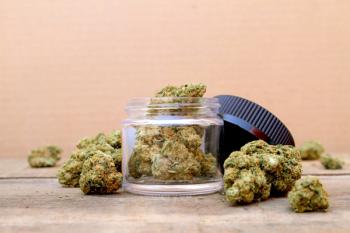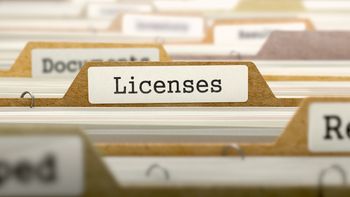
A Closer Look at the Legal Aspects of Patents in the Cannabis Industry

We recently spoke with Eric Furman, PhD, a partner at Knobbe Martens a leading intellectual property law firm with an expansive presence in the biotech and pharmaceutical fields and deep experience in intellectual property issues relating to the cannabis industry. Here, Furman provides some insight on what cases are currently on-going and what we might expect in the future as the cannabis industry continues to expand.
With the recent approval of Epidiolex by the US Food & Drug Administration and the rescheduling of cannabidiol (CBD) by the U.S. Drug Enforcement Administration, we can expect an increased interest in cannabis-derived drugs and formulations. That interest will likely lead to more patent filings and potential lawsuits of patent infringement. We recently spoke with Eric Furman, PhD, a partner at Knobbe Martens a leading intellectual property law firm with an expansive presence in the biotech and pharmaceutical fields and deep experience in intellectual property issues relating to the cannabis industry. Here, Furman provides some insight on what cases are currently on-going and what we might expect in the future as the cannabis industry continues to expand.
How has the U.S. Food and Drug Administration’s (FDA) approval of the first cannabis-derived drug, Epidiolex, affected different patents?
Eric Furman: Other drugs containing synthetic versions of tetrahydrocannabinol (THC) and other cannabis plant chemicals have already been FDA approved. But Epidiolex is the first FDA-approved drug that is made from the plant. This is significant because it is the first time that the FDA has found that the cannabis plant has an accepted medical use. This will likely lead to an uptick in patent application filings directed to cannabis-derived medicine.
Have there been specific patent cases related to Epidiolex or other cannabis-related drugs?
Furman: United Cannabis appears to be the first cannabis-related patent infringement suit. In the United Cannabis case, the asserted patent covers “A liquid cannabinoid formulation, wherein at least 95% of the total cannabinoids is/are (1) tetrahydrocannabinolic acid (THCa), (2) tetrahydrocannabinol (THC), (3) cannabidiol (CBD), (4) THCa and cannabidiolic acid (CBDa), (5) THC and CBD, and (6) CBD, cannabinol (CBN) and THC.”
There do not appear to have been any Epidiolex-related patent cases (based on a search in Docket Navigator or Westlaw).
There do not appear to be any post-United Cannabis patent cases related to “cannabis” or “marijuana” in Docket Navigator: For the sake of completeness, I would not consider the Hyperponic case. In that case, Hyperponic LLC apparently is not the assignee/inventor on any patents, but rather seeks to enjoin defendant from pursuing patents on protected technology. Hyperponic LLC f/k/a Solaridy LLC v. Carroll, FLMD-8-18-cv-01992.
There has been at least one Inter partes Review (IPR) challenging the validity of a cannabis-related patent. Insys Development Co., Inc. v. GW Pharma Ltd. et al, IPR2017-00503. That case is ongoing.
For those of us not familiar with patent law, how exactly does it work and what can people sue for using patent infringement?
Furman: This is a complicated question but to summarize, one must first obtain a patent and to do so the claimed invention must be new, non-obvious, and must be directed to patent eligible subject matter. After filing the patent application in the United States, an examination procedure is conducted by the United States Patent Office and the Examiner seeks to determine whether your claimed invention meets the criteria above, as well as, whether your application itself sufficiently describes the invention and enables one to make and use the invention without undue experimentation. Once it has been determined that the Applicant should receive the patent, a notice of allowance is given and ultimately the patent grants. With a granted patent, one may enforce the patent against an infringing party but the enforceable aspect of the patent is the claims not the disclosure. That is, one may only sue those that infringe at least one claim of a granted patent. Infringement may be literal in that the activities of the adverse party are directly encompassed by the granted claims or the infringement may be through the doctrine of equivalents in that the activities of the adverse party do not directly fall within the granted claims but the missing elements or substituted elements are insubstantial differences and provide the same function, way, and result. The doctrine of equivalents has been cut-back by the courts significantly over the years and is a much more difficult case to prove. There are many nuances to your question and the above is a very general outline.
Has the U.S. Drug Enforcement Administration’s (DEA) recent change in the scheduling of cannabidiol (CBD) from Schedule I to Schedule V resulted in more cases? How do you expect the change in scheduling to affect patents in the future?
Furman: As indicated above, there is just one district court case, the United Cannabis case. It is probably a little too soon to tell what empirical effect the reclassification will have. But the issue does not appear to be how the issuance of patents will be affected, but rather the circumstances under which courts will enforce these patents. The reclassification is a step toward judicial enforcement of these patents.
What do you think of the idea that the change in scheduling will free up research scientists, doctors, and hospital administrators to explore other uses for CBD, while opening pharmaceutical and biotech firms up to a challenging patent landscape?
Furman: Possibly, but the giant hurdle is that certain activities are illegal under Federal law. Once Federal law decriminalizes cannabis and cannabis use, much more of such activities will occur.
Newsletter
Unlock the latest breakthroughs in cannabis science—subscribe now to get expert insights, research, and industry updates delivered to your inbox.




